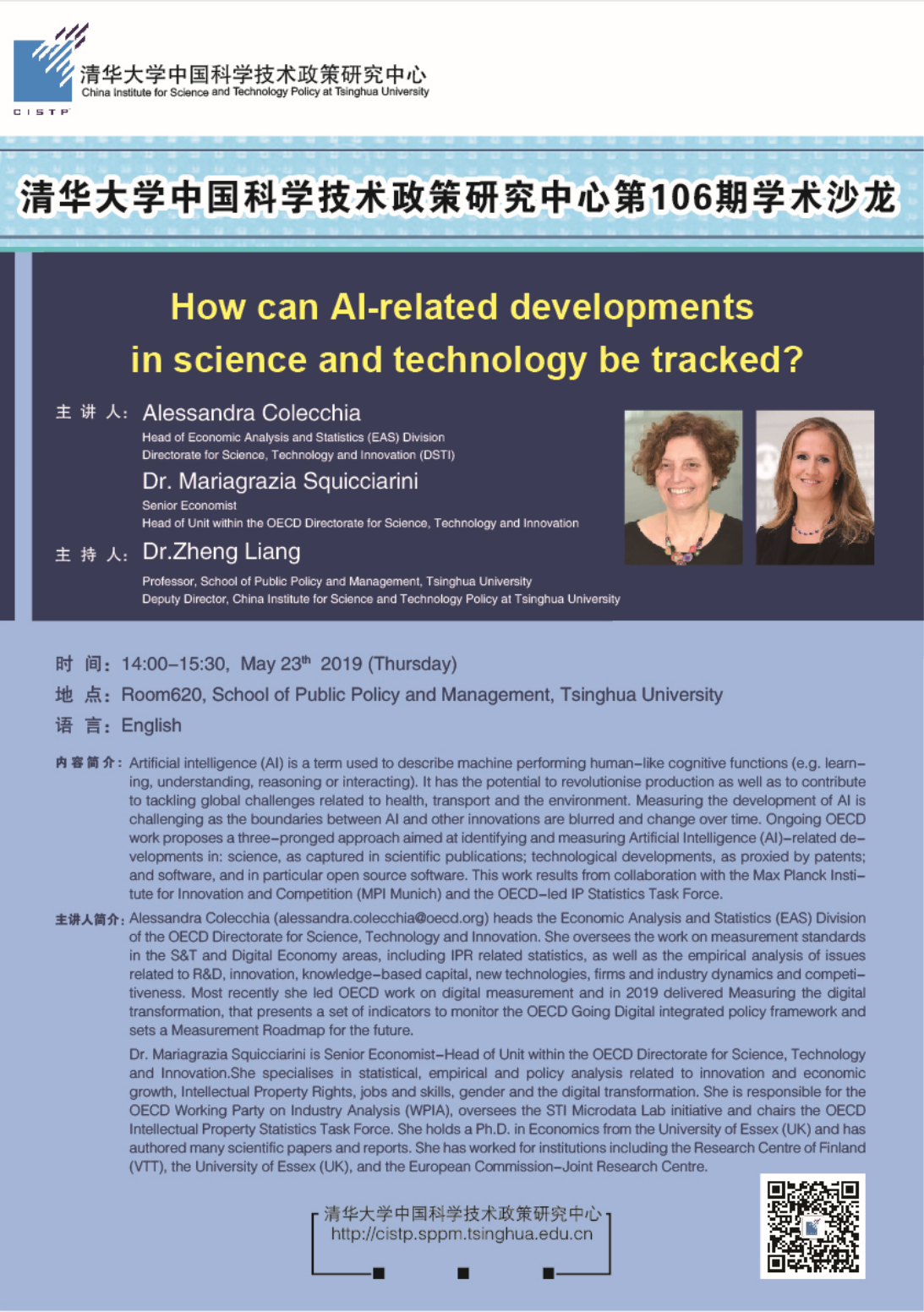Welcome to CISTP'S 106th Academic Salon
How can AI-related developments in science and technology be tracked?

Lecturer: Alessandra Colecchia
Head of Economic Analysis and Statistics (EAS) Division, OECD Directorate for Science, Technology and Innovation (DSTI)
Dr. Mariagrazia Squicciarini
Senior Economist
Head of Unit within the OECD Directorate for Science, Technology and Innovation
Moderator: Dr.Zheng Liang
Professor, School of Public Policy and Management, Tsinghua University
Deputy Director, China Institute for Science and Technology Policy at Tsinghua University
Time: 14:00-15:30, 23th May, 2019 (Thursday)
Place: Room 620, School of Public Policy and Management, Tsinghua University
English: English
Content:
Artificial intelligence (AI) is a term used to describe machine performing human-like cognitive functions (e.g. learning, understanding, reasoning or interacting). It has the potential to revolutionise production as well as to contribute to tackling global challenges related to health, transport and the environment. Measuring the development of AI is challenging as the boundaries between AI and other innovations are blurred and change over time. Ongoing OECD work proposes a three-pronged approach aimed at identifying and measuring Artificial Intelligence (AI)-related developments in: science, as captured in scientific publications; technological developments, as proxied by patents; and software, and in particular open source software. This work results from collaboration with the Max Planck Institute for Innovation and Competition (MPI Munich) and the OECD-led IP Statistics Task Force.
Lecturer Information:

Alessandra Colecchia (alessandra.colecchia@oecd.org) heads the Economic Analysis and Statistics (EAS) Division of the OECD Directorate for Science, Technology and Innovation. She oversees the work on measurement standards in the S&T and Digital Economy areas, including IPR related statistics, as well as the empirical analysis of issues related to R&D, innovation, knowledge-based capital, new technologies, firms and industry dynamics and competitiveness. Most recently she led OECD work on digital measurement and in 2019 delivered Measuring the digital transformation, that presents a set of indicators to monitor the OECD Going Digital integrated policy framework and sets a Measurement Roadmap for the future.

Dr. Mariagrazia Squicciarini is Senior Economist – Head of Unit within theOECD Directorate for Science, Technology and Innovation.She specialises in statistical, empirical and policy analysis related to innovation and economic growth, Intellectual Property Rights, jobs and skills, gender and the digital transformation. She is responsible for the OECD Working Party on Industry Analysis (WPIA), oversees theSTI Microdata Labinitiative and chairs the OECD Intellectual Property Statistics Task Force. She holds a Ph.D. in Economics from the University of Essex (UK) and has authored many scientific papers and reports. She has worked for institutions including the Research Centre of Finland (VTT), the University of Essex (UK), and the European Commission-Joint Research Centre.